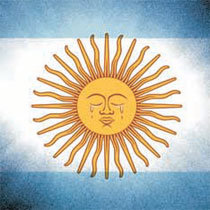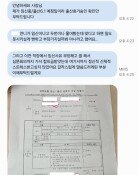Tears of Argentina
Tears of Argentina
Posted May. 10, 2018 07:48,
Updated May. 10, 2018 07:48

Argentina used to be the world’s fifth economic powerhouse by selling cows. Sometime around 1900, the refrigerator carrier was invented. Argentines would install barbed-wire fences, which were invented at a similar period of time, on a great plain called “pampa,” where cows were put out and would eat and grow on their own. The barbed-wires, which were being developed just in time, allowed cows to be exported to Europe and the United States. The three major inventions – refrigerator carrier, barbed-wires and railway – laid the grounds for Argentine cows to become an export blue chip like semi-conductors in Korea these days. This was the time setting of a teary story called the “3000 Leagues in Search of Mother” where a boy called Marco searches for his mother who went to work for a wealthy family in the rich country of Argentina from Italy like the current pouring human resources from South East Asia into Korea.
Unequal distribution of wealth generated by large-scaled pastures and agricultural product farms inflicted social conflicts and confusion, which in turn caused continuous military coups and repeated seizure of power by the left. Amidst all these confusion, Juan Paron became elected as president in 1946 and his wife, who used to be an actress, became the First Lady at the age of 27. She played the role of Evita, the protagonist of “Don’t Cry For Me Argentina.” By executing policies centered on workers, she was called as a saint on one hand and regarded as an epitome of populism on the other hand.
Major foreign press reported that Argentina initiated a negotiation to receive the IMF and 30 billion dollars of bailout loan on Tuesday (local time). As the United States increased its interest rate, dollars in Argentine started to flow out, which depreciated the peso, leading to skyrocketing price. This is the fourth national economic crisis following those in 1982, 2001 and 2014. The country lost the opportunity to develop global corporations when its economic situation was rosy. Since then, Argentina could not even get close to becoming a developed country, and instead has become a regular customer of IMF bailout.
Korea also has a history of receiving IMF bailout in 1997 when its fundamental was thought to be sound. These days, the Korean mnistries are coming forward to chaebol-bashing as if it is a competition. The Korean economy enjoys its status because of the challenges and achievement of corporations along with the sacrifice of workers. Who will now grow the cows of Korea?
Headline News
- N. Korea launches cyberattacks on S. Korea's defense companies
- Major university hospital professors consider a day off each week
- Italy suffers from fiscal deficits from ‘Super Bonus’ scheme
- Inter Milan secures 20th Serie A title, surpassing AC Milan
- Ruling and opposition prioritize spending amid tax revenue shortfalls







